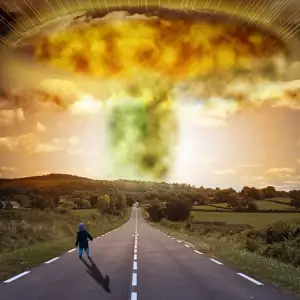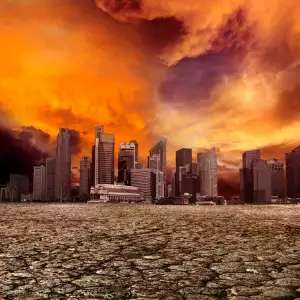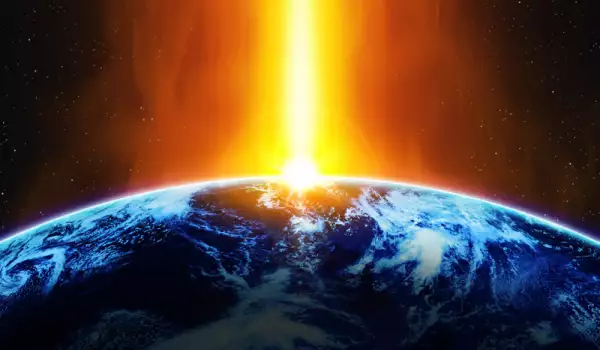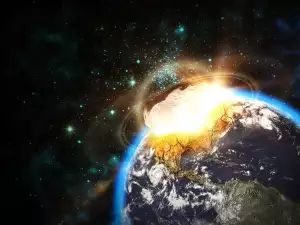Experts from the Future of Humanity Institute at the University of Oxford and the Global Challenges Foundation have listed the most likely causes for the end of the world. This is the first official publication of its kind by the prestigious university, the goal being not so much to frighten people but to warn them of the risks that may result further on down the line as society develops.
Global pandemic
As one of the most probable ways humanity could end scientists list a global pandemic that modern science cannot handle. This prognosis sounds especially worrisome when we consider the Ebola virus still raging in Africa. A pandemic takes the top spot on the list because of the ever more globalized world we live in.
Super volcano
The super volcano phenomenon is a volcanic eruption 1000 times greater than normal. The dust sent into the atmosphere by such an event would be capable of causing a global volcanic winter. The scariest thing in this case is that despite all the advancements in technology, humanity can do nothing to prevent such a cataclysm.
Artificial intelligence

Machines that have the ability to think have always caused suspicion and even fear. It is no wonder then that the experts from Oxford have placed the threat from them near the top of the list. It is believed that due to lack of control, artificial intelligence could develop to the point where it decides that humanity does more harm to the Earth than good.
Sudden drastic climate change
A drastic change in climate can be seen even now. What's debatable is how it will change - by a drastic drop or rise in temperature. At the moment, most experts in the scientific communities are leaning toward a rise of about 5°C. Even though this may not sound like much it would lead to the deaths of at least 45% of the human population.
Asteroid
Earth has already experienced an apocalypse after the collision of an asteroid. It led not only to the extinction of the dinosaurs but to a change in Earth's entire appearance. Scientists have calculated that our planet experiences such cataclysms once every 20 million years.
Ecological collapse
A possible doomsday scenario consists of an ecological collapse the complete disruption of the entire ecosystem. Even though we may think that we've somehow conquered nature, the fact is that humanity is completely dependent on it for food.
Nanotechnology
Nanotechnology is useful, its applications boundless. But even those who have played a key role in its development have shared that if it were to get out of hand it could cause the depletion of natural resources and clean water and even climate changes. There is also the possibility of creating weapons of unimaginable destructive power.

Nuclear war
The ghost of the Cold War is still alive, with a new one looming on the horizon. The fear of nuclear war between the superpowers Russia and the US has been revived. Ultimately though, everyone is hoping for reason to overcome business interests and for any type of missile launching to be prevented. Some estimates rate the probability of nuclear war happening to be about 10%.
Synthetic biology
Genetic engineering unarguably helps solve important problems. However, a genetically modified organism out of control can destroy the entire ecosystem. Bioterrorism is also no smaller threat.
Global system collapse
The economic crisis at the beginning of the 21st-century affected all of humanity, which continues to deal with its consequences. A similar crisis, but on a larger scale, could cause a crash in the system and the established order. According to experts this will lead to hunger, war, loss of morale and values and burdensome challenges for humanity.









